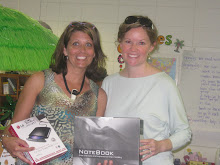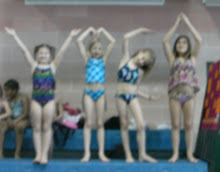February 28th- We are learning how to use the dictionary, encyclopedia, glossary, index, and thesaurus.
A dictionary is used to find the meaning, part of speech, pronunciation, etc. of a particular word
An encyclopedia gives facts about a particular subject. person, event, or place. There is a volume for each letter of the alphabet.
The glossary is a mini dictionary at the back of a book that gives meanings of vocabulary words.
An index is at the back of a book and it gives pages numbers where to find vocabulary in the book.
A thesuarus is a book that gives synonyms for words.
We are learning about synonyms, antonyms, homophones, and homographs.
Synonyms are words that have similar meanings. Example- pretty/beautiful, start/begin, draw/illustrate
antonyms are words that have opposite meanings. Example- on/off, up/down, start/stop
homophones are words that are pronounced the same but have different meanings and spellings. Example-deer/dear, I/eye, blew/blue
Homographs are words that are spelled the same but are pronounced differently. Example-present something to someone or I have a present for you.
We are working on the 4 types of sentences. Examples of each:
declarative=telling sentence/ends with a period. My name is Mrs. Aspinwall
interrogative=asking/ends with a question mark. Did you do your homework?
imperative=command/ends with a period. Write your name on your paper.
exclamatory=exciting/ends with an exclamation point. We won the game!
We will be using pumpkin seeds as quotation marks to go around a speaker's exact words.
Quotation marks are used in dialogue. We will do several activities to get used to using quotation marks. Mrs. Aspinwall said, "It is going to be a week full of fun learning activities."
Click on link below to practice parts of speech -
Pronouns take the place of nouns. Examples: he, she, it, them, us, I, you, me, him
possessive pronouns - my, his, hers, theirs, our, mine
We are learning about using commas - in a friendly letter, in a series, in the date, and between a city and state.
We are studying nouns. Ask your child to name some nouns around the house. You can also ask him/her to tell you common and proper nouns.- common nouns-a person, place, or thing.
-proper nouns - names a particular person, place, or thing. Proper nouns begin with capital letters.
example - common noun - teacher
proper noun - Mrs. Aspinwall
We are also learning about singular and plural nouns. Most nouns add -s to mean more than one. Nouns that end with -s, -x, -ch, or -sh add -es to mean more than one.
Some nouns change spelling to mean more than one. Example: child-children, man-men, leaf-leaves,
loaf-loaves.
And of course we have words that you change the y to i and add -es. lady-ladies,
Possessive nouns show ownership
-The dog's tail is wagging. What belongs to the dog? the tail
*apostrophe s is added to a noun to show ownership.





























